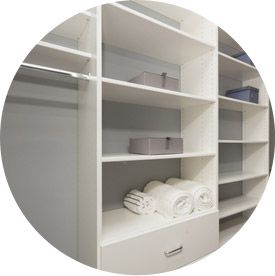- 9345 Princeton-Glendale Road, Hamilton, OH 45011
- |Contact Us
FAQ
It’s best to learn about the benefits of insulation and the different types of insulation available before beginning your project. Below, we have compiled a list of answers to frequently asked insulation questions. If you don’t find what you’re looking for, contact us online or call (513) 341-8918! We are happy to help.
Common Questions About Insulation
What is insulation and how does it work?
Insulation is a material that stops the transfer of heat and helps increase the energy efficiency of your home. In the summer, it stops warm air from leaking in, and during the winter, it helps heat stay in your home rather than escaping out. How insulation stops heat depends on the type and material.
What are the different types of insulation I can use?
There are many different types of insulation available:
- Fiberglass (loose-fill or blanket / batts and rolls)
- Cellulose
- Spray foam
- Radiant barrier
- Rigid foam
- Vinyl
How much insulation do I need to install?
A few factors determine how much insulation you need to install, including:
- Where you live
- How old your home is
- Which area(s) of your home you need to insulate
- And more
Where should I insulate my home?
It’s best to talk to a professional insulation contractor for your specific situation, but in general, your whole house should be insulated, including:
- Attic
- Basement
- Crawl spaces
- Walls
- Garage
- And more
What is R-value?
If you’ve ever talked to an insulation contractor, you’ve undoubtedly heard the term “R-value.” Basically, the R-value of a certain type of insulation refers to how effective it is at stopping heat transfer. The R-value depends on the material, thickness, and density of the insulation, and of course, installation (improperly installed insulation is almost like having no insulation at all).
What are the benefits of insulation?
The biggest reason to install insulation is the energy savings. Besides helping you save money and increase the energy efficiency of your home, insulation can help reduce noise and improve interior comfort levels.
Learn more about the benefits of insulation »
How are new construction and retrofit insulation different?
New construction insulation is installed in new homes and buildings being constructed while retrofit (or re-insulation) insulation refers to installing insulation in existing homes and buildings. Typically, the same insulation materials are used for both types of insulation projects.
What is blanket insulation?
Commonly used, this insulation comes in the form of batts and rolls. It consists of flexible fibers—generally fiberglass. However, batts and rolls can also be made from mineral wool, plastic fibers and natural fibers, such as cotton or sheep’s wool.
Can insulation save me money?
The amount of insulation energy savings you’ll see will depend on a few factors:
- The materials you use
- The area of your home that you choose to insulate
- The size of your home
- And more
Do I need more attic insulation?
Here are some signs that you may need to insulate your attic:
- Higher than normal energy bills
- Visible floor joists in the attic
- Overly warm second story
- Ice dams on the roof
- Snow melting too quickly off the roof
When should I remove insulation?
When insulation is old or damaged by mold, insects, water, fire or something else, your insulation should be completely replaced.
Learn more about when insulation should be removed »
What is the difference between batt and blown fiberglass?
Batt insulation is the type of insulation that comes in large fiberglass rolls, while blown-in insulation is installed with a special blowing device.
What is spray foam made of?
Spray foam consists of two liquid chemical components and is made by mixing and reacting the chemicals to create the foam.
How does insulation help reduce outside noise?
Insulation reduces the transmission of sound from one area by creating a barrier that absorbs vibrations between the sources of the noise and surrounding areas.
Can all types of insulation help reduce outside noise?
Not every type of insulation is ideal for reducing outside noises. Cellulose and blown-in/loose fill fiberglass insulation are great choices if you are interested in soundproofing benefits.
Can insulation be reused?
Cellulose can often be completely recovered and reused on site, leaving hardly any excess material to go to waste. Fiberglass can also be reclaimed from demolition debris and recycled into a new product.
If you have any additional questions about insulation that are not addressed on this page, please contact us online or call (513) 341-8918 for insight from our insulation experts!

Our insulation team adds energy efficiency, comfort & value to homes & buildings.





